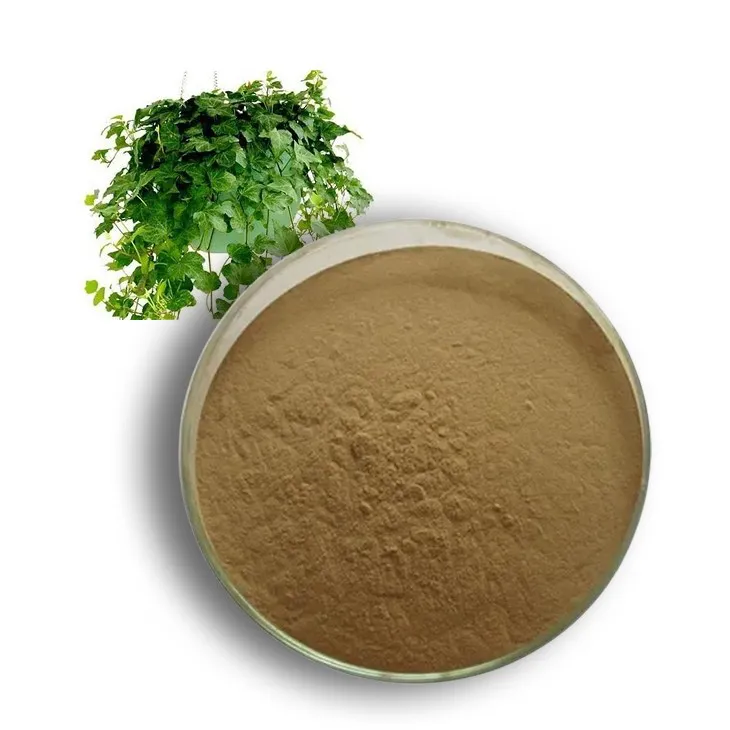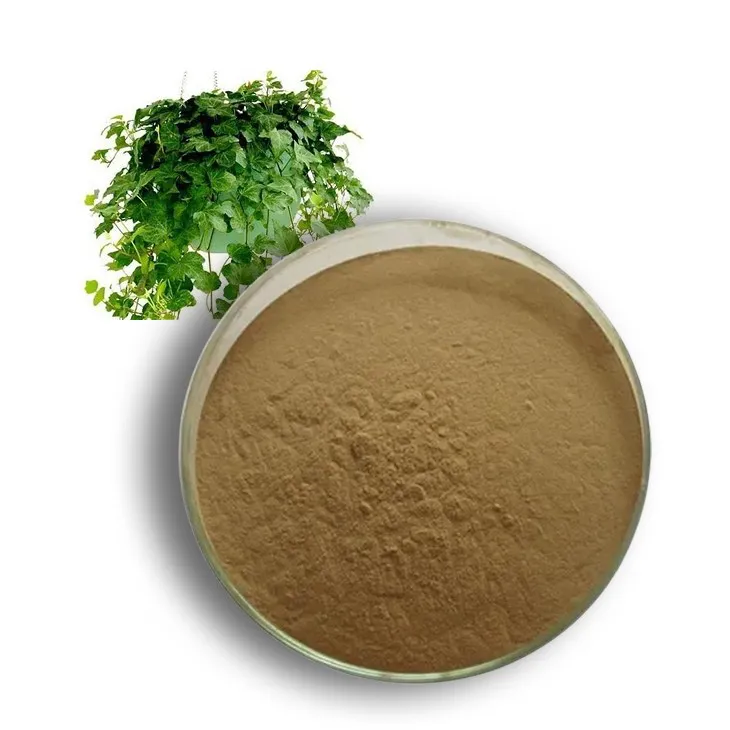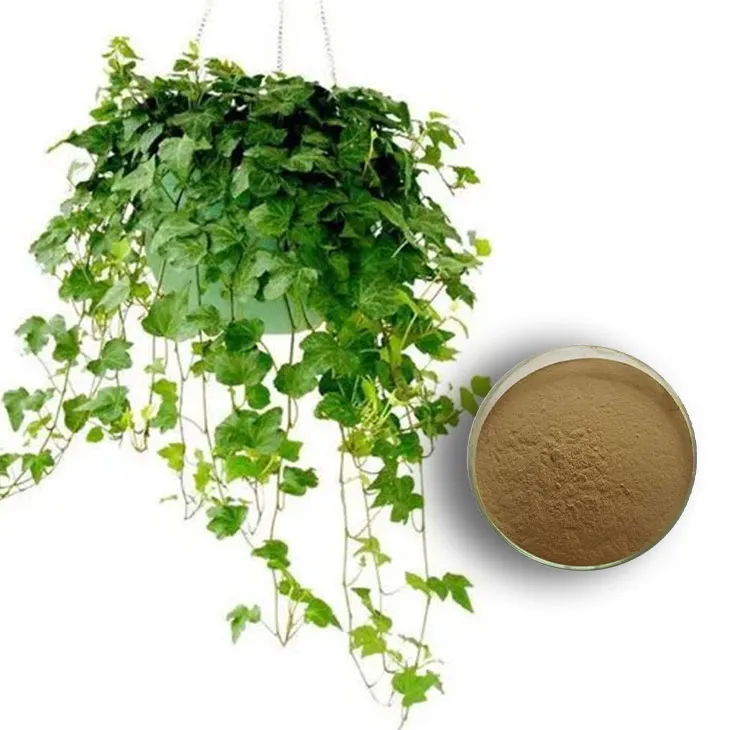- 0086-571-85302990
- sales@greenskybio.com
The Best Types of Ivy Extract: A Guide to Selecting the Best Ivy Extract
2024-11-14

1. Introduction
Ivy Extract has been a subject of increasing interest in various fields, including health and beauty. The extract is derived from different types of ivy plants, each with its own unique properties. In this comprehensive guide, we will explore the different types of Ivy Extract, factors to consider when choosing the best one, and its potential health benefits and applications.

2. Types of Ivy Plants Used for Extract
2.1 English Ivy (Hedera helix)
English ivy is one of the most common sources of Ivy Extract. It is a climbing vine native to Europe, Western Asia, and North Africa. The leaves of English ivy are rich in saponins, flavonoids, and other bioactive compounds. These components are believed to contribute to its potential health - promoting properties, such as anti - inflammatory and antioxidant effects.
2.2 Algerian Ivy (Hedera canariensis)
Algerian ivy is another type that can be used for extraction. It has larger leaves compared to English ivy. The extract from Algerian ivy may also possess certain beneficial compounds, although its composition may vary slightly from that of English ivy extract. It is often grown in Mediterranean regions and has been studied for its potential in treating respiratory conditions.

3. Factors in Selecting the Best Ivy Extract
3.1 Purity
Purity is a crucial factor when choosing ivy extract. High - purity extract is less likely to contain contaminants such as pesticides, heavy metals, or other impurities. To ensure purity, it is important to look for products that have been tested by reliable third - party laboratories. These tests can verify the absence of harmful substances and confirm the concentration of the active ingredients in the extract.
3.2 Origin
The origin of the ivy plants used for extraction can significantly impact the quality of the extract. Plants grown in clean, unpolluted environments are more likely to produce high - quality extract. For example, ivy plants grown in organic farms, away from industrial areas and heavy traffic, are less exposed to pollutants. Additionally, the climate and soil conditions in the origin area can influence the chemical composition of the ivy, which in turn affects the properties of the extract.
3.3 Extraction Methods
Different extraction methods can result in extracts with varying qualities. Common extraction methods include solvent extraction and supercritical fluid extraction. Solvent extraction uses solvents like ethanol or methanol to dissolve the active compounds from the ivy leaves. However, this method requires careful removal of the solvent residues to avoid any potential toxicity. Supercritical fluid extraction, on the other hand, uses supercritical carbon dioxide as the solvent. This method is considered more environmentally friendly and can often produce a purer extract with a higher concentration of active ingredients.

4. Potential Health Benefits of Ivy Extract
4.1 Respiratory Health
Ivy extract has been traditionally used for improving respiratory health. It may help in relieving coughs, reducing mucus production, and soothing irritated airways. The saponins present in ivy extract are thought to have expectorant properties, which can assist in clearing the airways. Some studies have also suggested that ivy extract can be beneficial for people with asthma or chronic obstructive pulmonary disease (COPD) by reducing inflammation in the lungs.
4.2 Skin Health
In the realm of skin health, ivy extract can offer several benefits. Its antioxidant properties can help protect the skin from damage caused by free radicals, which are associated with premature aging, wrinkles, and skin cancer. Ivy extract may also have anti - inflammatory effects on the skin, which can be useful in treating skin conditions such as eczema and psoriasis. Additionally, it may improve skin hydration and elasticity, contributing to a more youthful and healthy complexion.
4.3 Anti - Inflammatory Effects
The anti - inflammatory properties of ivy extract are not limited to the skin and respiratory system. Systemic inflammation is associated with a variety of health problems, including heart disease, diabetes, and arthritis. Ivy extract's bioactive compounds, such as flavonoids and saponins, are believed to modulate the body's immune response and reduce inflammation at a cellular level. This may potentially help in preventing or managing these chronic diseases.
5. Applications of Ivy Extract
5.1 Dietary Supplements
Ivy extract is commonly used in dietary supplements. These supplements are available in various forms, such as capsules, tablets, and liquid extracts. They are often marketed for their potential health benefits, including respiratory support, immune system enhancement, and anti - inflammatory effects. However, it is important to note that the use of dietary supplements should be under the guidance of a healthcare provider, as they may interact with medications or have potential side effects.
5.2 Cosmetics
In the cosmetics industry, ivy extract is a popular ingredient in skincare products. It can be found in creams, lotions, serums, and masks. Ivy extract is added to these products for its antioxidant, anti - inflammatory, and skin - enhancing properties. For example, it may be used in anti - aging creams to reduce wrinkles and improve skin texture, or in acne - treating products to reduce inflammation and redness.
5.3 Herbal Remedies
Ivy extract has a long history of use in herbal remedies. In traditional medicine, it has been used to treat various ailments, such as coughs, colds, and skin diseases. Although modern scientific research is still exploring and validating many of these traditional uses, some herbalists continue to recommend ivy extract - based preparations for their potential therapeutic effects.
6. Precautions and Side Effects
While ivy extract has potential health benefits, it is not without precautions and possible side effects. Some people may be allergic to ivy extract, and contact with the plant or use of the extract may cause skin rashes, itching, or swelling. Ingesting large amounts of ivy extract may also lead to gastrointestinal problems, such as nausea, vomiting, and diarrhea. Pregnant and breastfeeding women should avoid using ivy extract, as its safety during these periods has not been established. Additionally, if you are taking medications, especially those for heart disease, diabetes, or blood - thinning, it is important to consult your doctor before using ivy extract, as it may interact with these medications.
7. Conclusion
Ivy extract offers a range of potential health benefits and has diverse applications in health, beauty, and traditional medicine. When choosing the best type of ivy extract, factors such as purity, origin, and extraction methods should be carefully considered. However, it is also important to be aware of the potential precautions and side effects associated with its use. By making an informed decision, individuals can potentially harness the benefits of ivy extract while minimizing any associated risks.
FAQ:
What are the different types of ivy extract?
There are mainly two types of ivy extract: English ivy (Hedera helix) extract and Algerian ivy (Hedera canariensis) extract. English ivy extract is more commonly used. It contains various active compounds such as saponins. These different types may have slightly different chemical compositions and potential applications.
How does the origin of ivy affect the quality of the extract?
The origin of ivy can significantly impact the quality of the extract. Ivy growing in unpolluted, natural environments is likely to be of higher quality. For example, ivy from regions with clean air and soil may have fewer contaminants. Different geographical locations can also lead to variations in the plant's chemical profile. If the origin has a favorable climate and soil conditions, the ivy may produce more of the desired active compounds, resulting in a more potent and pure extract.
What extraction methods are used for ivy extract?
Common extraction methods for ivy extract include solvent extraction and supercritical fluid extraction. Solvent extraction often uses ethanol or other organic solvents to dissolve the active compounds from the ivy plant material. Supercritical fluid extraction, typically using carbon dioxide in a supercritical state, can be more selective and may produce a cleaner extract with less solvent residue. Each method has its own advantages and can affect the final quality and composition of the ivy extract.
What are the potential health benefits of ivy extract?
Ivy extract has several potential health benefits. It is often associated with respiratory health. It may help to relieve coughs and congestion by loosening mucus in the airways. Some studies suggest that it has anti - inflammatory properties, which could be beneficial for conditions involving inflammation, such as bronchitis. Additionally, it may have antioxidant effects, which can help protect the body's cells from oxidative damage.
How can one ensure the purity of ivy extract?
To ensure the purity of ivy extract, one should look for products from reputable manufacturers. These manufacturers should follow good manufacturing practices (GMP). Testing for contaminants such as heavy metals, pesticides, and microbial impurities is crucial. Third - party testing can also provide an extra level of assurance. Additionally, choosing extracts that are clearly labeled with their source, extraction method, and any additional purification steps can help in ensuring purity.
Related literature
- Ivy Extract: Chemical Composition and Biological Activities"
- "The Significance of Origin in Plant Extract Quality: A Case Study of Ivy Extract"
- "Comparative Study of Different Extraction Methods for Ivy Extract"
- "Health - Promoting Effects of Ivy Extract: A Review"
- ▶ Hesperidin
- ▶ Citrus Bioflavonoids
- ▶ Plant Extract
- ▶ lycopene
- ▶ Diosmin
- ▶ Grape seed extract
- ▶ Sea buckthorn Juice Powder
- ▶ Fruit Juice Powder
- ▶ Hops Extract
- ▶ Artichoke Extract
- ▶ Mushroom extract
- ▶ Astaxanthin
- ▶ Green Tea Extract
- ▶ Curcumin
- ▶ Horse Chestnut Extract
- ▶ Other Product
- ▶ Boswellia Serrata Extract
- ▶ Resveratrol
- ▶ Marigold Extract
- ▶ Grape Leaf Extract
- ▶ New Product
- ▶ Aminolevulinic acid
- ▶ Cranberry Extract
- ▶ Red Yeast Rice
- ▶ Red Wine Extract
-
Soy Extract
2024-11-14
-
Citrus bioflavonoids
2024-11-14
-
Sophora Japonica Flower Extract
2024-11-14
-
Lemon Balm Extract
2024-11-14
-
Pueraria Lobata Extract
2024-11-14
-
Aguaje Extract
2024-11-14
-
Red Date Extract
2024-11-14
-
Peppermint Extract Powder
2024-11-14
-
Camu Camu Extract
2024-11-14
-
Coconut Water Powder
2024-11-14





















